Skyrise is a steampunk delight that delivers satisfying area majority through clever bidding
We all know by now that Roxley Games make some fantastic products, and in most cases, they are not shy about shouting it from the rooftops. Released initially as an (almost) million (Canadian) dollar Kickstarter with multiple, massively overproduced versions, we are now left with a relatively understated but still very nice retail release. Putting all the plastic, pomp and circumstance aside though, and Skyrise a really solid and very satisfying experience that may just be a unique feature of your collection.
Skyrise is a bidding game where players use their uniquely numbered buildings to snake across the board, placing a higher value building than the prior player, but always on an adjacent space. So where normal bidding games involve bidding for a single space, in Skyrise, the first player bids for one space by placing their building on it, and the following player must either pass or place a higher value building on any connected space.
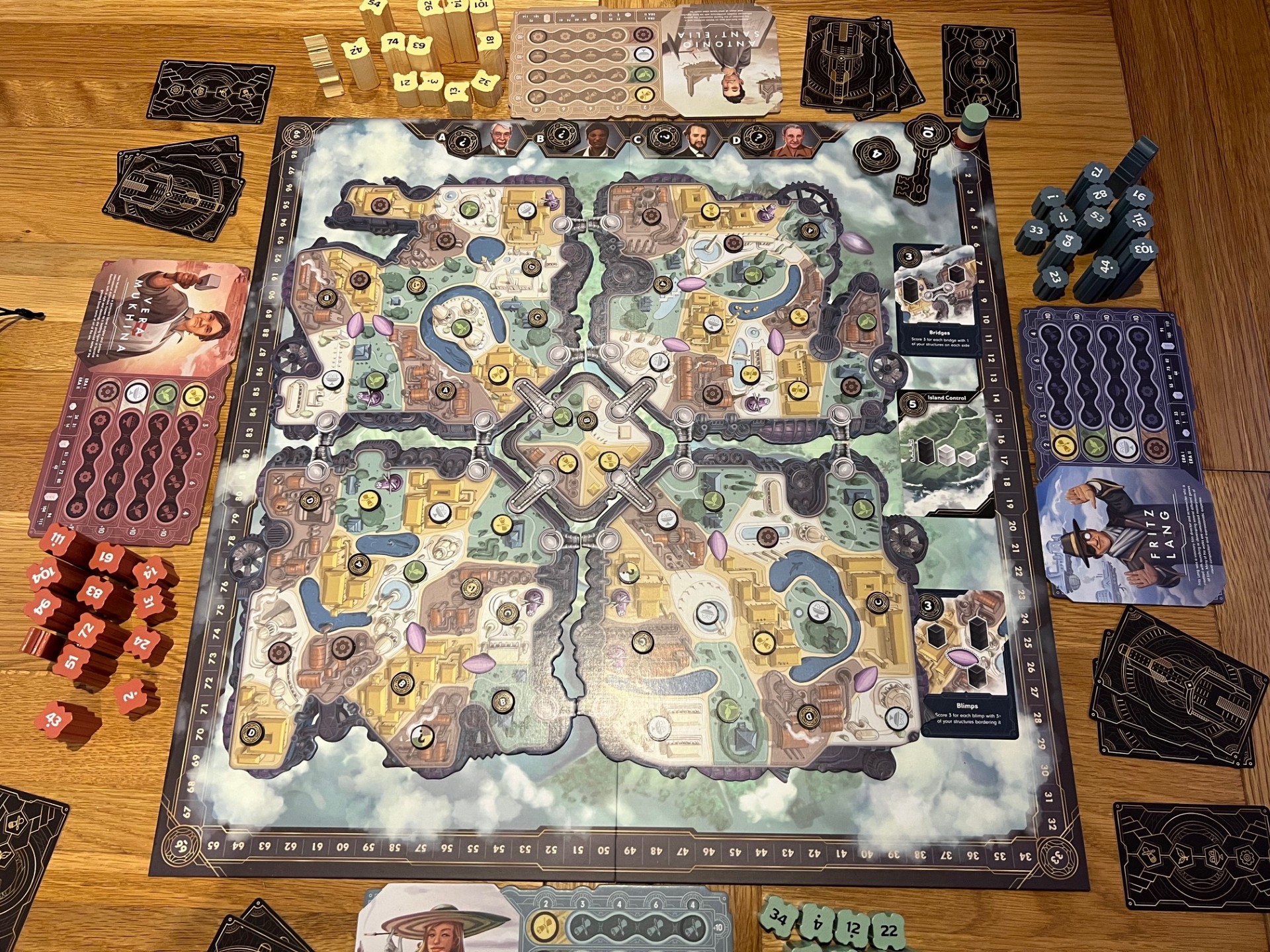
If all players pass in sequence, then the current high bid (on whatever space it occupies) will be flipped over to become an active building – with all other buildings (showing their bid value) returned to their owners. In the second round of the game, players will also have access to a single wonder building that can be placed at any point to end the bidding and simply “win” the current auction on whatever space it lands on.
The reason that it’s important to “guide” the snake of bids to different places is due to a couple of scoring factors. Firstly, each and every space has a token on it that corresponds to one of three tracks on your board, or to one of four hidden scoring tokens that link to four wealthy patrons. Each of these tokens scores in its own way, as do a secret personal scoring card, your wonder card (chosen from three at the start of the second round of play) and the basic majority and landmark scoring cards that are visible to everyone.
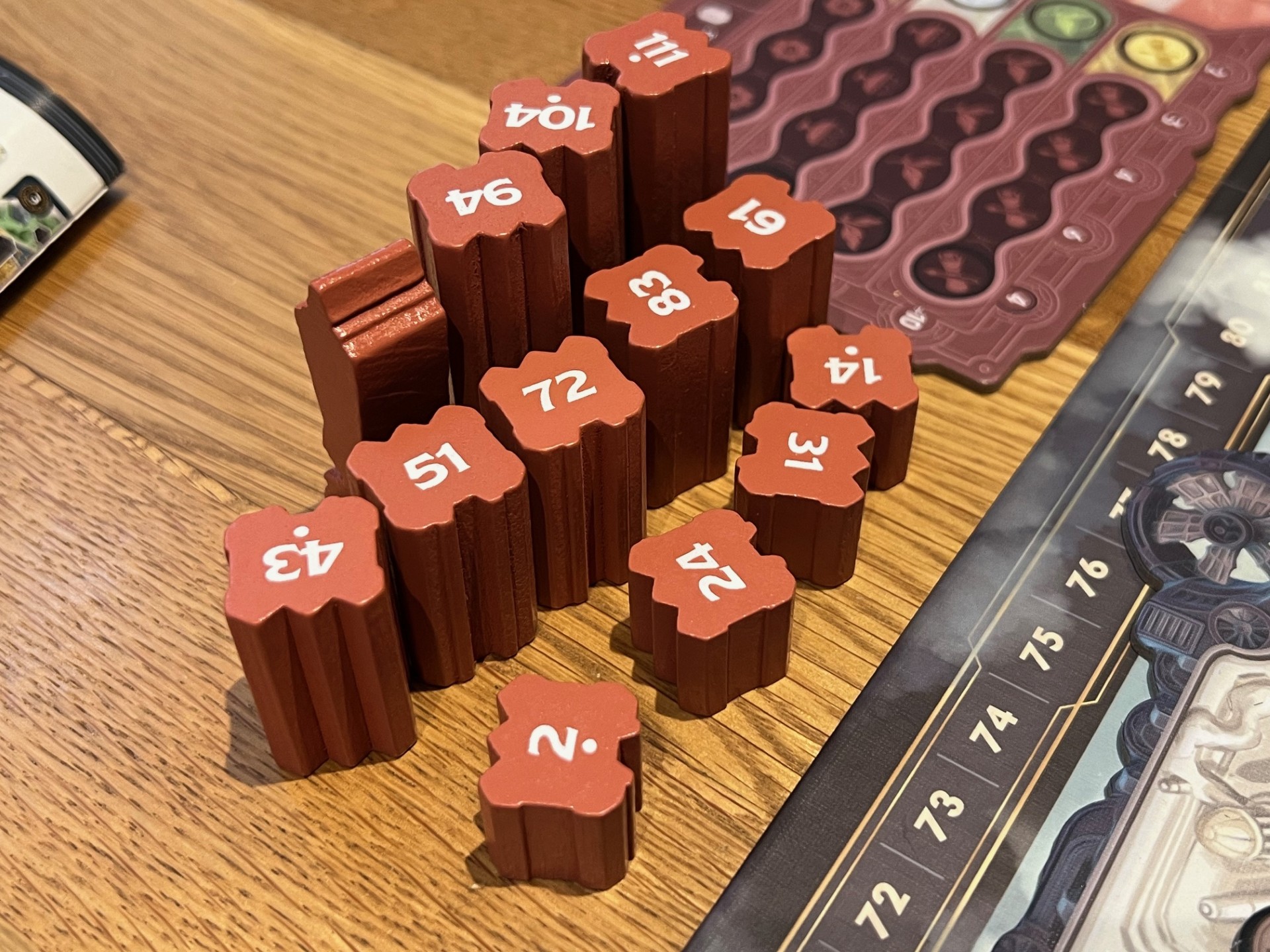
Players will naturally want to collect these tokens based on whatever plan they might have – and this could be guided by their secret objective, or it might even link to the wonder cards they have in hand. If one of your wonder cards focusses on green spaces or tokens, and you happen to win a couple of those spaces early, you’ll lean towards that wonder when it comes time to make the final decision. Equally, with wonders especially, you’ll always find at least one (and often two) of your options just don’t help you score based on the board state that developed during the first round.
What’s nice about Skyrise is that most of the scoring options and criteria are completely open for all players to see – so if you feel an individual player is going to run away with things because of their focus on a particular scoring feature, you can literally work against them by bidding accordingly. The patron tokens allow the player who takes then to look at the hidden points value of tokens of that type, but everyone else will remain in the dark – and the points range is three to eight, so if someone takes an “A” token and then seems keen to get more – chances are the A patron is going to be a decent scoring option.
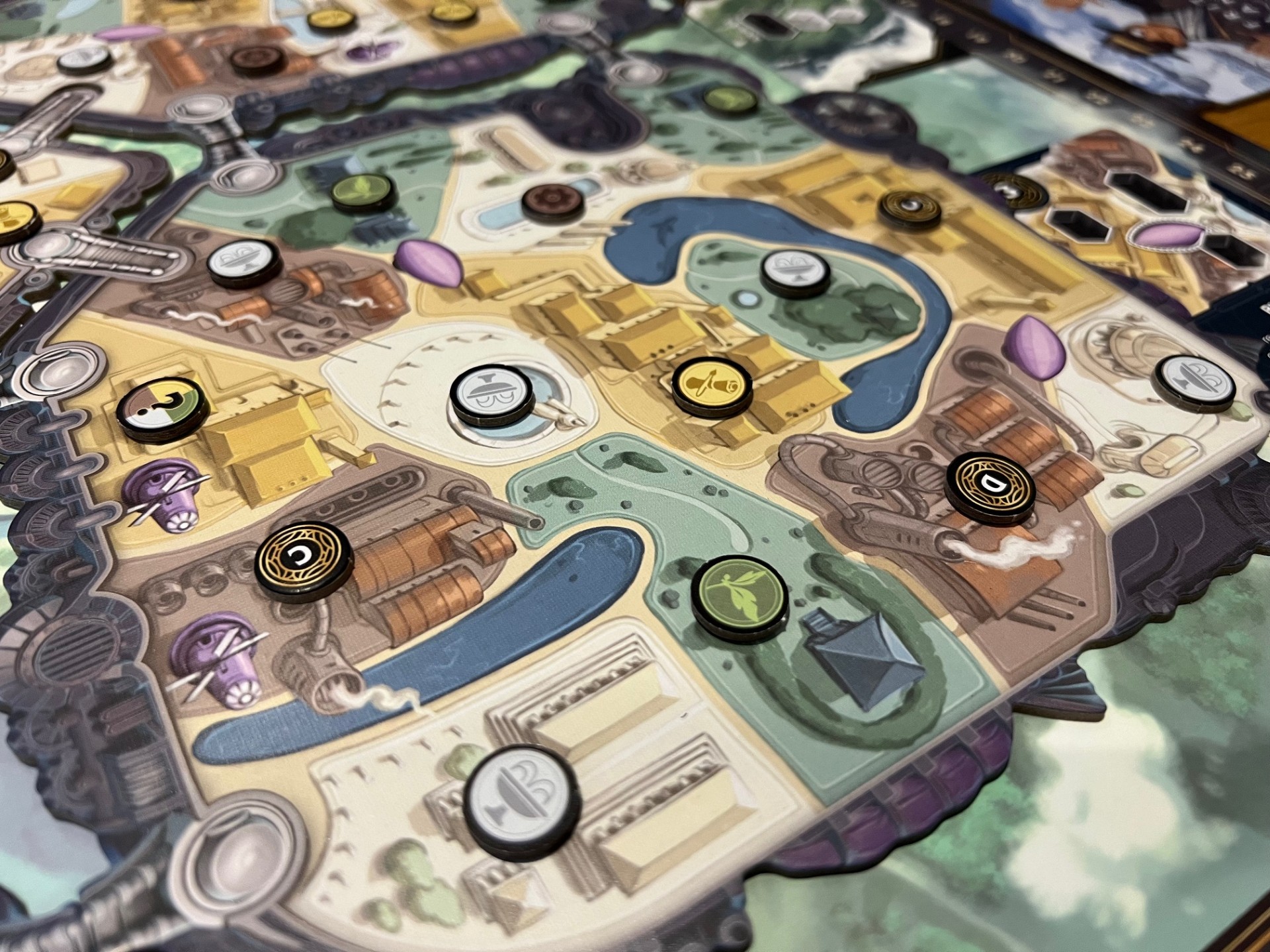
One way that Skyrise is very clever is in the design of the board. There are four island pieces and one central tile, with one island used per player. These islands connect to the central board via cardboard bridges, and regardless of which two islands you use, there will also be two bridges that connect the islands along their edge. I mentioned how bids snake across the board already, but each island uses features like small lakes and weird dead ends that allow the players to bring these runs to an end. Sometimes the snake can even come back around on itself and end in a pleasing coil shape. The lack of predictable patterns works wonders for a game like Skyrise.
The two-round approach is also clever. Every building in each of the four colours has a unique number, but you can only access a subset of your own supply in the first round. The second round introduces a couple of low numbered “small” buildings and a couple of the largest ones as well, but only one mid number and it also triggers a scoring event. Players might be tempted to hold buildings back for the second round, but they can’t do that because if a player gets all their buildings out, that is actually the second round trigger – and it means that player might score big in the first scoring event.
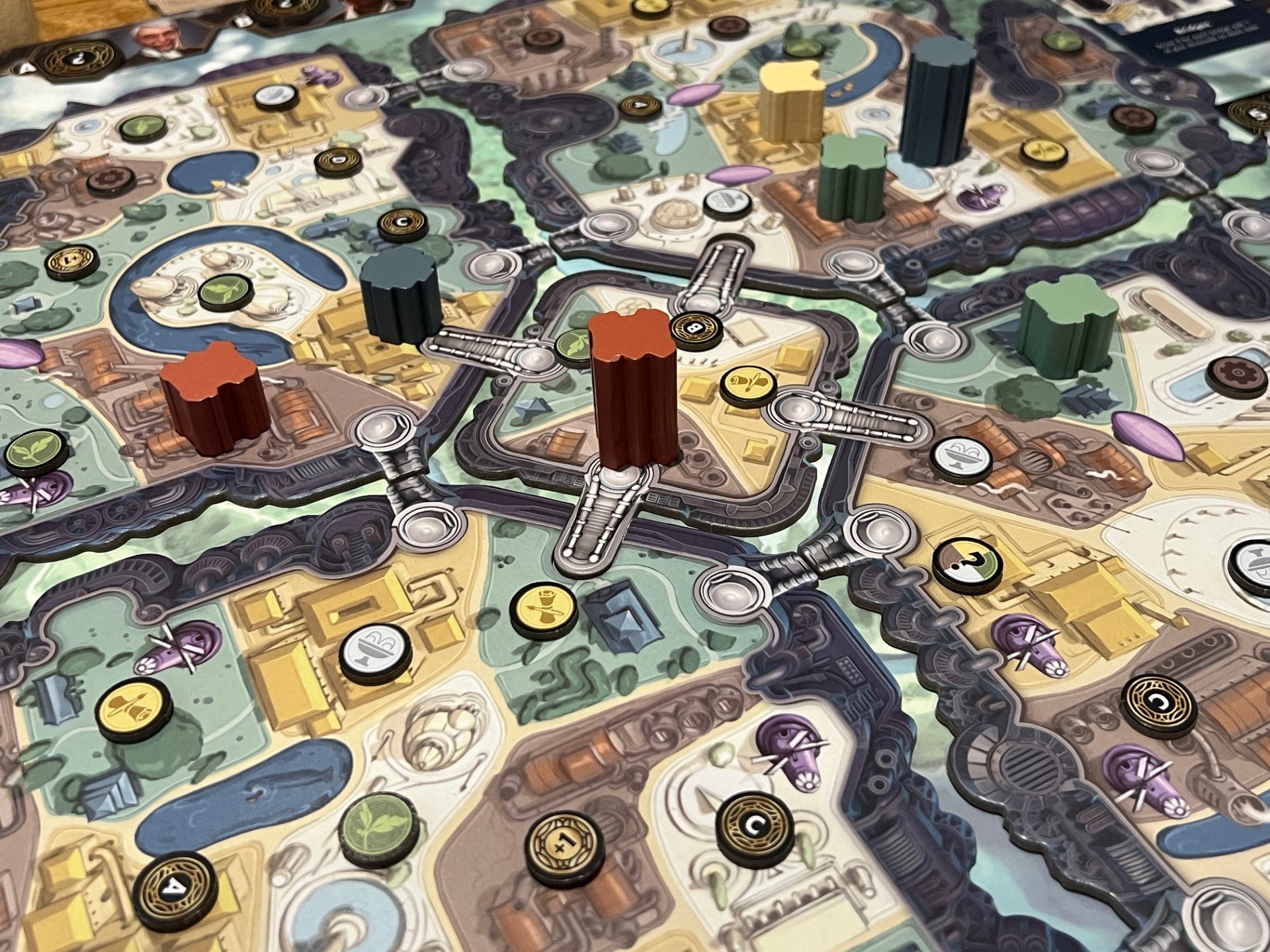
If you can get your head around the scoring – which is simple, but there’s a lot of ways to do it – then Skyrise is a very straightforward game. All you’re really doing is deciding whether or not to outbid the previous player, and if you do, which direction to take the bidding in. For spaces you really want, you can drop one of your biggest buildings, but because all building values are open information – this can mean the other players have you beaten for a lot of the remaining auctions.
Briefly returning to versions of this game – I should just mention that I am playing the basic retail version. This one comes with a perfectly serviceable and attractive set of cardboard boards, some great quality cards and most importantly, some fairly decent wooden buildings. In the Kickstarter version, the buildings are plastic and the board is a massively elaborate three-dimensional affair. I don’t miss any of that, but the tiny cardboard tokens in my retail version would be much better off replaced by the wooden ones in the Kickstarter version. C’est la vie, I guess.
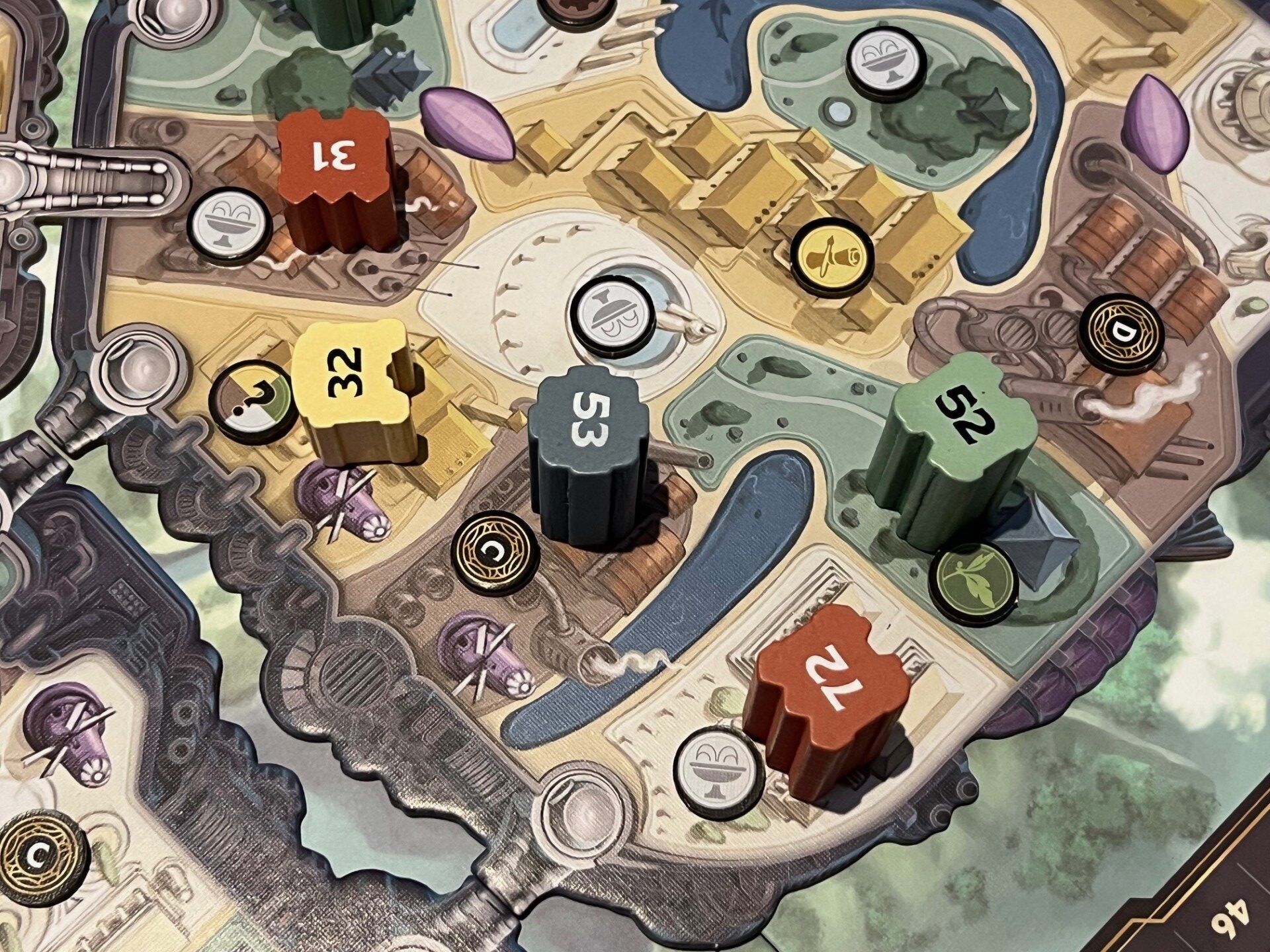
Overall, Skyrise is a nice retail production of a really good game. It’s obvious that Roxley Games have drawn inspiration from both their other games and the designers they have worked with. The two-round approach is lifted directly from Martin Wallace’s Brass, whilst the Steampunk theme of Skyrise seems to sync nicely with Roxley’s Steampunk Rally: Atomic Edition. I have no problem at all with designers and publishers joining these dots if it makes for a better product – and with Skyrise, Roxley Games are onto a winner.
You can purchase Skyrise on Amazon.
Love board games? Check out our list of the top board games we’ve reviewed.
Comments are closed.